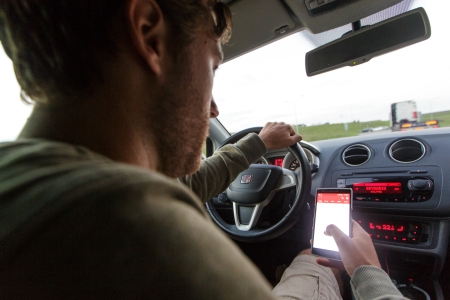Although a navigation system proves to facilitate the driving task, operating the system while driving diverts attention from other traffic. Navigation systems have clear advantages for users, provided drivers receive high quality data (updated and correct information). Drivers report to have more control over their journey (almost 80%), to be less stressed (almost 70%) and to have less trouble focusing their attention on the road (60%). Drivers using a navigation system also need to make less of a mental effort than drivers doing without such a system, measured both subjectively and objectively [38].
Operating a navigation system, however, results in less attention being paid to the surrounding traffic. American research showed that entering a destination into a navigation system is more mentally demanding and takes more time than other secondary activities, such as operating audio equipment, making phone calls, or texting [39]. From a road safety point of view, a user of a navigation system needs to enter the destination before departure at all times. A large majority of drivers agree that it is dangerous to set the system while driving. In spite of this, 64% of the interviewees reported having sometimes or frequently done this [40]. A recent Dutch Naturalistic Driving study shows that during journeys with an active navigation system, drivers spend 5% of their time operating the system. In about 65% of this operating time, drivers drove at a speed of 10 kms/hour or higher [41].
